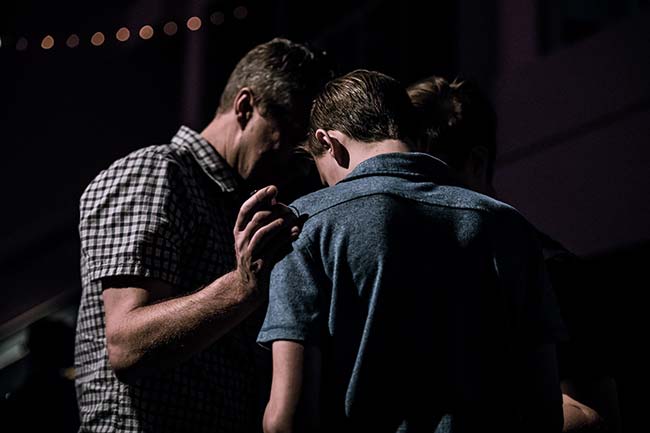By Rick Chromey
Friendships don’t just happen. They are grown and seasoned.
In part one of “The Great Disconnect” I revealed how churches have lost their ability to develop friendships. We excel at “connections” and superficial interactions, but struggle to move people into deeper, more authentic community, especially in our large group gatherings. It’s one thing to share “space” and “time” at church and another to foster experiences for people to meet, make, and mature lasting friendships.
My life group (barely six months old) continues to grow in our friendships. Individual members now connect outside of group for coffee, hikes, shopping, rides, and other social experiences. Our group interactions spark moments of transparency and testimony. Members even bring friends. We have become a band of brothers (and sisters).
We got there through intentional pastoring. We’re not perfect but we took the following deeper steps that are often missing in larger church gatherings.
CONVERSATIONS: Sharing Insights
Most friendships never grow beyond shared time and space. In many churches the rituals, traditions, and sermon are more important. We need to stay on time and conversations are naturally messy, chaotic, and off script.
But it’s only when people move into deeper interactions that friendships form meaning. And no meaningful relationship happens without conversation. Think about the dating or the early years of marriage. Shared space and time are wonderful, but it’s the conversations—the sharing of insights—that makes “love” grow. In my book Sermons Reimagined, I reveal how to communicate through conversations.
This level of friendship is highly enjoyable, but few people experience it…particularly at church. This level of friendship—which I call “interplay”—happens outside of group: over coffee, playing ball, riding bikes, or enjoying dinner. It’s where we really get to know each other and carve a casual friendship.
In my life group, we form trios every week for moments of interplay conversation to spark meaningful friendships. Interplay cannot happen with a group larger than six, and it’s a missing component in many small groups.
DEEP SHARING: Sharing Affections
Let’s get real.
The final two levels rarely happen in a group larger than a dozen. It’s why most small groups stall around 15 people. Human beings desire deeper connection, and that occurs best in small groups of three to five people. In other words, even small groups have to get “smaller” to keep growing.
This can happen in a home small-group setting but only if the group is grooved to this objective, and some people will resist it. In my life group, we use prayer trios to spark these “affections.”
Another caveat: If you want to reach this level of sharing, move to gender specific interactions. A husband will spill his guts in a micro-group once he feels safe (and his wife isn’t there). I suspect the opposite is also true.
ACCOUNTABILITY: Sharing Souls
Accountability is the highest level of community that happens outside of church or small group. It’s why I encourage my life-group members to find same-sex accountability partners to deepen their spiritual walks.
Accountability means tougher conversations, rebukes, counseling, and dedicated discipleship. It’s old men with young men. It’s grandmas mentoring new moms. It’s two individuals sharing their stuff.
I can’t force this level of intimacy, but I can model it.
Just like Jesus modeled these levels of friendship.
He continually sparked connections and created new friendships. Then inside his discipleship group, Jesus generated deeper conversations and accountability. Ironically, few of these encounters happened at a synagogue or temple. Most occurred in homes, on lakes, by hillsides, and under trees.
Friendships are naturally wild and free.
And so should be the church.



